As energy costs continue to rise and environmental concerns grow, finding ways to be more energy efficient is becoming essential. If you’re renting your home, achieving energy efficiency can seem daunting. But, with a few simple changes, you can significantly reduce your home’s energy consumption! Let’s explore various tips and tricks to help you save money, lessen your environmental impact, and create a more comfortable living space… all without breaking the bank!
Lighting
Switch to LED Bulbs
LED bulbs use significantly less energy and last much longer than traditional incandescent bulbs. By switching to LEDs, you can save on your energy bills and reduce the frequency of bulb replacements.
Use Natural Light
Maximize the use of daylight by opening curtains and blinds during the day. This reduces the need for artificial lighting and can create a more pleasant and inviting atmosphere in your home.
Smart Lighting Solutions
Affordable smart bulbs and timers allow you to control your lighting more efficiently. Set timers to turn lights off when not needed or use smart bulbs that can be controlled via smartphone apps.
Heating and Cooling
Seal Drafts
Using draft stoppers—fabric tubes with insulating material inside—on your doors and windows can help prevent unnecessary heat loss, making your home more energy efficient.
Use Fans Wisely
Ceiling fans can help circulate air efficiently. In the summer, set the fan to rotate counterclockwise to create a cooling breeze. In the winter, set it to rotate clockwise to distribute warm air.
Appliances and Electronics
Energy-Efficient Appliances
Look for Energy Star-rated appliances, which use less energy and water than standard models. Even small appliances like microwaves and coffee makers come in energy-efficient versions.
Unplug Devices
Many devices continue to draw power even when turned off, known as phantom loads. Unplugging devices when not in use can prevent this unnecessary energy consumption.
Power Strips
Use power strips to easily turn off multiple devices at once. This makes it convenient to cut power to several electronics with a single switch.
Water Usage
Low-Flow Fixtures
Installing low-flow showerheads and faucet aerators can significantly reduce water usage without sacrificing performance. These fixtures are not only easy to install but also enhance energy efficiency by minimizing the amount of water that requires treatment, pumping, and heating—all processes that consume significant amounts of energy.
Fix Leaks
Even small leaks can waste a significant amount of water over time. Promptly fixing any leaks in your home can help conserve water and reduce your utility bills.
Efficient Laundry Practices
Washing clothes in cold water and air-drying them, when possible, can save a considerable amount of energy. Modern detergents are effective in cold water, so there's no need to use hot water for most loads.
Insulation and Windows
Curtains and Blinds
Use thermal curtains to keep heat in during the winter and out during the summer. Closing curtains at night or on hot days can help maintain a comfortable temperature indoors.
Window Film
Apply window film to improve insulation and reduce heat loss through windows. Window film can also block harmful UV rays, protecting your furniture and reducing cooling costs.
Rugs and Carpets
Using rugs can add an extra layer of insulation to floors, helping to keep your home warmer in the winter and cooler in the summer.
Implementing these energy efficiency tips can have numerous benefits, from saving money to reducing your environmental footprint and enhancing the comfort of your home. Start with small changes and gradually incorporate more tips as you go. For more energy efficiency tips, check out NOPEC’s Energy Savings Center!


